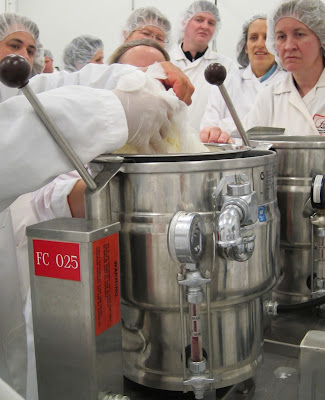Reds Rule the Wine Horizon
Wine tastings are so much fun as you get the opportunity to compare several different wines. I’m delighted that I’ve been given the opportunity to attend and write about the Reds Rule the Wine Horizon event at 5:30 on Friday, October 1 at TCU Place, Saskatoon. The event is sponsored by Doug Reichel Wine Marketing, and you can purchase tickets from http://www.tcuplace.com/allevents.php or (306) 975 7770.
There’s an interesting line-up of wines from around the world: Australia, New Zealand, Argentina, South Africa, Spain, Italy, and Canada.
Cape Jaffa Wines is one of only four fully-certified biodynamic vineyards in South Australia. Biodynamic farming is a holistic approach, which includes timing vineyard operations according to the phases of the moon. Perhaps that is why their wine is called La Lune Shiraz.
 Christie Brown, the winemaker for Wild South wines in Marlborough, New Zealand, says that the great thing about winemaking is that no year is the same. We’ll taste the 2009 Pinot Noir.
Christie Brown, the winemaker for Wild South wines in Marlborough, New Zealand, says that the great thing about winemaking is that no year is the same. We’ll taste the 2009 Pinot Noir.
There’s an interesting line-up of wines from around the world: Australia, New Zealand, Argentina, South Africa, Spain, Italy, and Canada.
I did a little online research and was delighted to discover that at least five of the wines are being grown organically. This makes sense to me as winemakers have always valued the connection between the terroir, the place where the grapes are grown, and the taste of the wine.
Melipal is a family-owned winery in the foothills of the Andes. They view their land as a legacy to be passed on to the next generation. They grow green crops (rye, beans, peas) to nourish the soil, don’t use inorganic fertilizers and reuse water for irrigation.
Luis Manino, the Export Director for Bodega Melipal is making his first-ever trip to Saskatchewan for this event. We’ll have an opportunity to taste the Melipal Malbec Reserve 2006 and the Melipal Malbec 2007.
Cape Jaffa Wines is one of only four fully-certified biodynamic vineyards in South Australia. Biodynamic farming is a holistic approach, which includes timing vineyard operations according to the phases of the moon. Perhaps that is why their wine is called La Lune Shiraz.
The Rico Suter Pinotage is also grown organically with thick cover crops that are a haven for birds and insects.
Luzon Dulce is a dessert wine from southeast Spain made with Monastrell grapes, which have been grown in the Mediterranean region since at least the 15th century. Luzon is moving towards environmentally-careful land use and already sells an organic red wine.
Women Winemakers
Many of the wines we’ll taste on October 1 are grown by family-owned businesses. And, in at least two cases, the winemakers are women.
 Christie Brown, the winemaker for Wild South wines in Marlborough, New Zealand, says that the great thing about winemaking is that no year is the same. We’ll taste the 2009 Pinot Noir.
Christie Brown, the winemaker for Wild South wines in Marlborough, New Zealand, says that the great thing about winemaking is that no year is the same. We’ll taste the 2009 Pinot Noir. Anna Hooper is in charge of winemaking at Cape Jaffa.
There is an interesting Facebook page for women winemakers.
Other Wines
Perbruno 2006 comes from a small winery near Pisa, Italy, that limits production in order to increase quality.
Morning Bay is a Canadian winery. The grapes for the 2005 Reserve Merlot are grown on the Osoyoos bench and then aged for two years on Pender Island.
My thanks to Doug Reichel for giving me a pass to the wine tasting. I’m really looking forward to not only tasting the wines but also having a conversation with Luis Manino of Bodega Melipal. I’ll keep you posted.
P.S. I’m planning to eat before attending the tasting. It’s so easy to get tipsy otherwise!






Comments